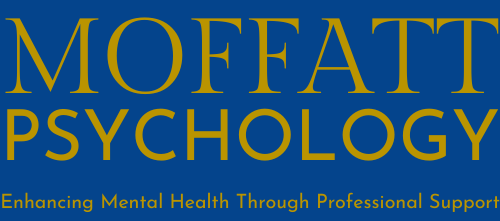Attention Deficit Hyperactivity Disorder (ADHD) is often associated with children, but it’s a condition that can persist into adulthood. Unfortunately, many adults might not even realise they have ADHD because the symptoms can often be mistaken for other issues such as anxiety or depression. Understanding the key signs of adult ADHD and knowing when to seek an assessment is crucial for managing one’s mental health effectively.

Understanding Adult ADHD
ADHD in adults manifests differently compared to children. While children may display more overt hyperactivity, adults often deal with more subtle symptoms that can impact their daily lives significantly.
Key Signs Adults Shouldn’t Ignore
- Inattention and Lack of Focus:
- Common Experiences: Adults with ADHD may find themselves frequently zoning out during conversations, having difficulty following instructions, or being easily distracted by external stimuli.
- Impact: This inattention can result in poor performance at work, difficulties in maintaining relationships, and an overall sense of being disorganised.
- Impulsivity:
- Common Experiences: Impulsivity in adults might manifest as making hasty decisions without considering the consequences, interrupting others frequently, or having trouble waiting for their turn in situations.
- Impact: Such behaviors can lead to conflicts at the workplace, strained relationships, and unintended consequences from impulsive actions.
- Disorganisation and Difficulty Prioritising:
- Common Experiences: Difficulty in keeping track of tasks, misplacing items often, or struggling to prioritise tasks can be key indicators of ADHD.
- Impact: Disorganisation can lead to missed deadlines, financial problems, and overall inefficiency in managing daily responsibilities.
- Time Management Issues:
- Common Experiences: Chronic lateness, an inability to estimate how long tasks will take, or the tendency to procrastinate can be symptoms of ADHD.
- Impact: Poor time management can affect both professional and personal life, leading to stress and feeling overwhelmed.
- Emotional Dysregulation:
- Common Experiences: Adults with ADHD may experience mood swings, irritability, or frustration over minor issues.
- Impact: Emotional dysregulation can make it challenging to maintain stable relationships and can contribute to feelings of depression or anxiety.
When to Seek an Assessment
Recognising these signs is the first step, but understanding when to seek a professional assessment is crucial. Here are key considerations:
- Persistent Symptoms:
- If the symptoms mentioned above have been persistent and pervasive across different aspects of your life, it may be time to seek an assessment.
- Impact on Daily Life:
- If these symptoms are significantly impacting your ability to perform at work, maintain relationships, or manage daily tasks, professional help should be sought.
- Co-occurring Conditions:
- ADHD often co-occurs with other mental health conditions such as anxiety, depression, or substance abuse. If you are experiencing symptoms of these conditions alongside those of ADHD, an assessment could help in creating a comprehensive treatment plan.
- Family History:
- ADHD can run in families. If you have a family history of ADHD or other mental health issues, it’s worth considering an assessment if you’re experiencing symptoms.
The Assessment Process at Moffatt Psychology
At Moffatt Psychology, we are committed to providing thorough and compassionate assessments for adult ADHD. Our professional support is designed to enhance your mental well-being through a structured assessment process.
- Initial Consultation:
- The first step involves a comprehensive consultation to understand your history, symptoms, and the impact on your daily life.
- Detailed Evaluation:
- This may include standardised questionnaires and interviews to understand the full scope of your symptoms.
- Collaborative Approach:
- We believe in a collaborative approach where you are involved in every step of the assessment. This ensures that all your concerns are addressed, and you have a clear understanding of the results.
- Personalised Treatment Plan:
- Based on the assessment results, we create a personalised treatment plan which may include therapy, lifestyle changes, and possibly medication.
Why Early Intervention is Important
Early intervention can make a significant difference in managing ADHD. Understanding and addressing symptoms early can lead to better outcomes and a higher quality of life. Here’s why seeking help sooner rather than later is beneficial:
- Improved Coping Strategies:
- Learning effective coping strategies can help manage symptoms and reduce their impact on daily life.
- Enhanced Relationships:
- Addressing symptoms can improve communication and relationships with family, friends, and colleagues.
- Better Work Performance:
- Effective management of ADHD symptoms can lead to improved focus and productivity at work.
- Reduced Risk of Co-occurring Conditions:
- Early intervention can prevent the development of additional mental health issues like anxiety and depression.
- Increased Self-awareness:
- Understanding ADHD and its impacts on your life can lead to increased self-awareness and personal growth.
Conclusion
Recognising the signs of adult ADHD and seeking an assessment can be life-changing. At Moffatt Psychology, we are here to support you every step of the way with professional, compassionate care. If you suspect you might have ADHD or know someone who does, consider reaching out for an assessment. Your mental well-being is our commitment.


